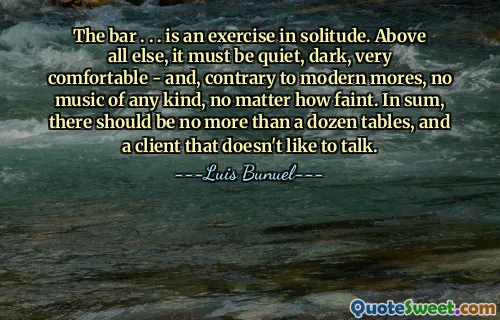Luis Buñuel was a renowned Spanish filmmaker known for his significant contributions to the world of cinema. His work often explored themes of surrealism and social criticism, challenging conventions and societal norms. Buñuel's films are characterized by their provocative imagery, intricate narrative structures, and a distinctive blend of humor and darkness. Notable works include "Un Chien Andalou" and "The Discreet Charm of the Bourgeoisie," which showcase his unique storytelling style and innovative techniques. Throughout his career, Buñuel collaborated with various artists and writers, using these partnerships to enrich his cinematic vision. His ability to merge striking visuals with compelling narratives set him apart from his contemporaries, allowing him to become a critical figure in both surrealism and the broader landscape of avant-garde cinema. Buñuel's work often reflects his personal experiences and philosophical inquiries into faith, identity, and the human condition. As a filmmaker, Luis Buñuel left a lasting legacy, influencing generations of directors and writers. His exploration of the subconscious and critique of societal norms remain relevant in contemporary film discussions. By pushing boundaries and provoking thought, Buñuel's films continue to resonate, inviting audiences to confront the complexities of their own lives and beliefs.
Luis Buñuel was a pioneering Spanish filmmaker known for his unique blend of surrealism and social commentary.
His cinematic works, including "Un Chien Andalou," challenged traditional narrative forms and offered a critical look at society.
Buñuel's legacy endures in the film industry, influencing countless filmmakers and sparking discussions around the nature of cinema and reality.
More »
Today Birthdays
1729 -
Edmund Burke
1949 -
Haruki Murakami
1954 -
Howard Stern
1876 -
Jack London
1993 -
Zayn Malik
1951 -
Kirstie Alley
1863 -
Swami Vivekananda
1923 -
Alice Miller
1987 -
Naya Rivera
1825 -
Brooke Foss Westcott
1944 -
Joe Frazier
1951 -
Rush Limbaugh
1964 -
Jeff Bezos
1978 -
Jeremy Camp
1628 -
Charles Perrault
1856 -
John Singer Sargent
1970 -
Kaja Foglio
1953 -
Rick Santelli
1986 -
Gemma Arterton
1968 -
Raf Simons
1958 -
Christiane Amanpour
1966 -
Olivier Martinez
1996 -
Ella Henderson
1917 -
Maharishi Mahesh Yogi
1949 -
Ottmar Hitzfeld
1928 -
Ruth Brown
1968 -
Heather Mills
1946 -
George Duke
1968 -
Rachael Harris
1923 -
Ira Hayes
